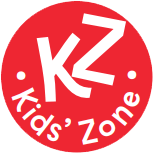DESIGN & TECHNOLOGY
"Design is not just what it looks and feels like. Design is how it works." - Steve Jobs
"Technology makes what was once impossible, possible." - Michael Gagliano
"In DT we are asked to use our maths, science and art skills combined to come up with something really good!" - MV Pupil
"I think it is so interesting to learn all about how things work. So many things are so clever." - MV Pupil
"I like the fact that I can use my imagination." - MV Pupil
“Children overwhelming choose DT as one of their favourite subjects, especially cooking where they learn skills that will stay with them for life. They love the more practical nature of DT lessons and enjoy the experience of being submersed in a subject for a few days at a time.” - DT Leader
"We need to teach the next generation how to be the designers of the future so we have to make DT fun and exciting." - MV Staff
"We are delighted that the children of Morley Victoria are taught to cook as part of their DT lessons. They just love it!" - MV Governor
'D&T in primary schools develops young children's skills and knowledge in design, structures, mechanisms, electrical control and a range of materials, including food. D&T encourages children's creativity and encourages them to think about important issues.' - DATA (Design and Technology Association) www.data.org.uk
The purpose of DT:
Design and technology is an inspiring, rigorous and practical subject. Using creativity and imagination, pupils design and make products that solve real and relevant problems within a variety of contexts, considering their own and others’ needs, wants and values. They acquire a broad range of subject knowledge and draw on disciplines such as mathematics, science, engineering, computing and art. Pupils learn how to take risks, becoming resourceful, innovative, enterprising and capable citizens. Through the evaluation of past and present design and technology, they develop a critical understanding of its impact on daily life and the wider world. High-quality design and technology education makes an essential contribution to the creativity, culture, wealth and well-being of the nation.
Design and Technology (DT) is an important subject at Morley Victoria which develops children’s skills and knowledge in design, structures, mechanisms, electrical control and food. It affords our children the opportunity to develop skills, knowledge and understanding of designing and making functional products. Using their creativity and imagination, pupils design and make products that solve real and relevant problems within a variety of contexts, considering their own and others’ needs, wants and values. DT helps to nurtures children's creativity and encourages them to think about how good design coupled with advances in technology can help with the important wider issues we all face in the world we live and work. Many other subjects cross over with DT, including maths, science, computing and art. Through designing and making products, these subjects can be brought to life and placed in a real-world context making them easier to understand for our younger pupils.
All children will be:
- Given a design brief and asked to create a product that fits with the design criteria with the end user in mind
- Given the opportunity to investigate, disassemble and evaluate products
- Asked to carry out focussed practical tasks
- Asked to design make and evaluate using the 6 key DT essentials of user, purpose, innovation, authenticity, functionality and design decisions.
Design and Technology in EYFS
Design and Technology knowledge, understanding and skill development in EYFS is taught mainly under the ‘Expressive Arts and Design’ and ‘Understanding the World’ sections of Development Matters but it does cross over into many other areas too. Design and Technology is taught by exploring and playing in purposeful well thought out areas of provision, through active learning and through creating and thinking critically.
In EYFS the children:
- Explore different materials, using all their senses to investigate them.
- Manipulate and play with different materials. Use their imagination as they consider what they can do with different materials.
- Make simple models which express their ideas.
- Explore different materials freely, to develop their ideas about how to use them and what to make.
- Make imaginative and complex ‘small worlds’ with blocks and construction kits, such as a city with different buildings and a park.
- Join different materials and explore different textures.
- Develop their own ideas and then decide which materials to use to express them.
- Return to and build on their previous learning, refining ideas and developing their ability to represent them.
- Create collaboratively, sharing ideas, resources and skills.
The lessons provide children with a solid base to allow them to access the National Curriculum in Year 1.
The development of Design and Technology proficiency at Morley Victoria is achieved through opportunities and experiences across the whole curriculum. Our D&T curriculum enables pupils to take part in a broad range of practical activities directly concerned with: identifying needs; generating ideas; planning and designing; making and testing; evaluating embodying the principle of designing something, for somebody for some purpose
Design and Technology spans and links the whole curriculum together for our pupils. In primary school it has its roots in imaginative play, art, science and computing. We want all children at Morley Victoria to learn to think innovatively, to question and explore the practical world around them and to develop a positive, growth mind-set approach to their learning through use of an iterative design process.
Food Technology is a very important strand of the D&T curriculum at Morley Victoria. We strive to provide all our children with the opportunity to learn about making healthy food choices and the importance of a balanced diet. We also encourage them to design and make recipes alongside developing basic but essential cooking skills - see our cooking page for more details.
Top 5 Reads:
- The Little Inventors Handbook D Wilcox
- Awesome Engineering Activity for Kids C Schul
- How to be an Engineer C Vorderman
- Little Kids First Big Book of How National Geographic
- Curiosity - The Story of the Mars Rover M Motum
For help, support and ideas to try at home, why not have a look at the following great websites:
https://www.theschoolrun.com/5-home-design-and-technology-projects-primary-children
https://www.bbc.co.uk/bitesize/subjects/zykw2hv
https://www.bbcgoodfood.com/recipes/collection/no-cook-kids-recipes






































